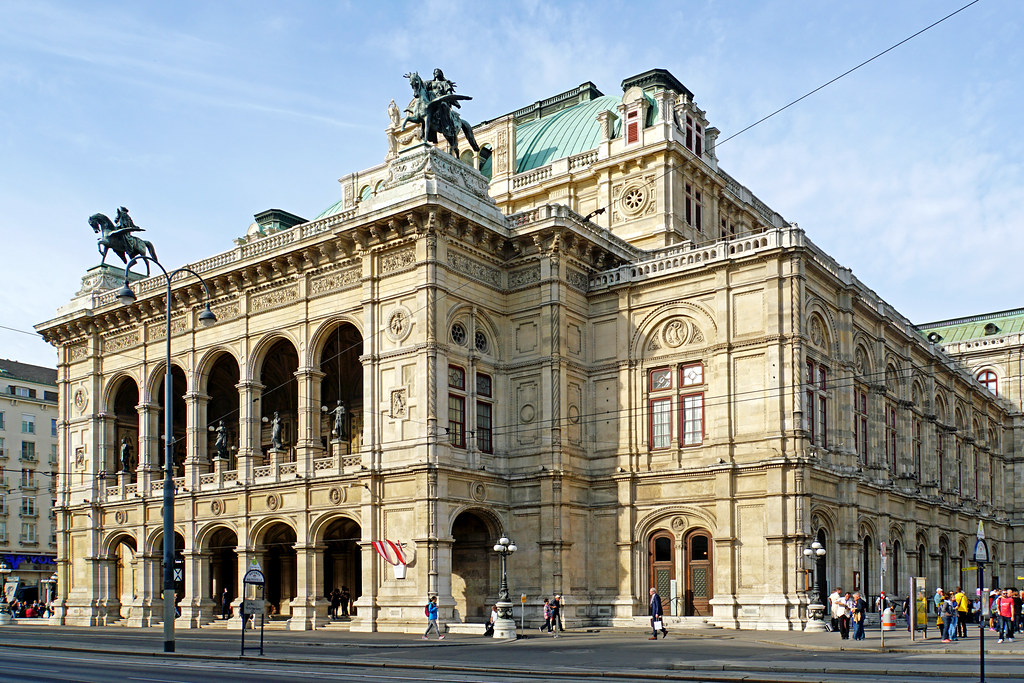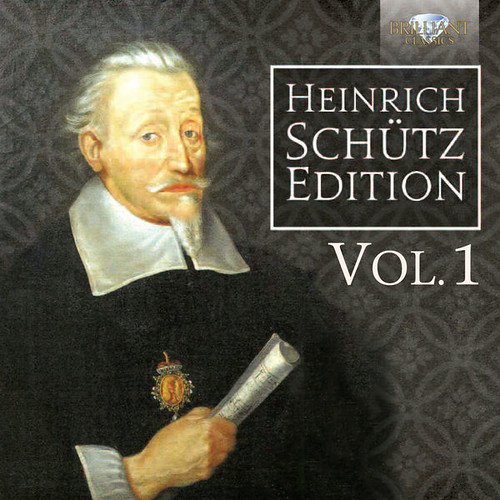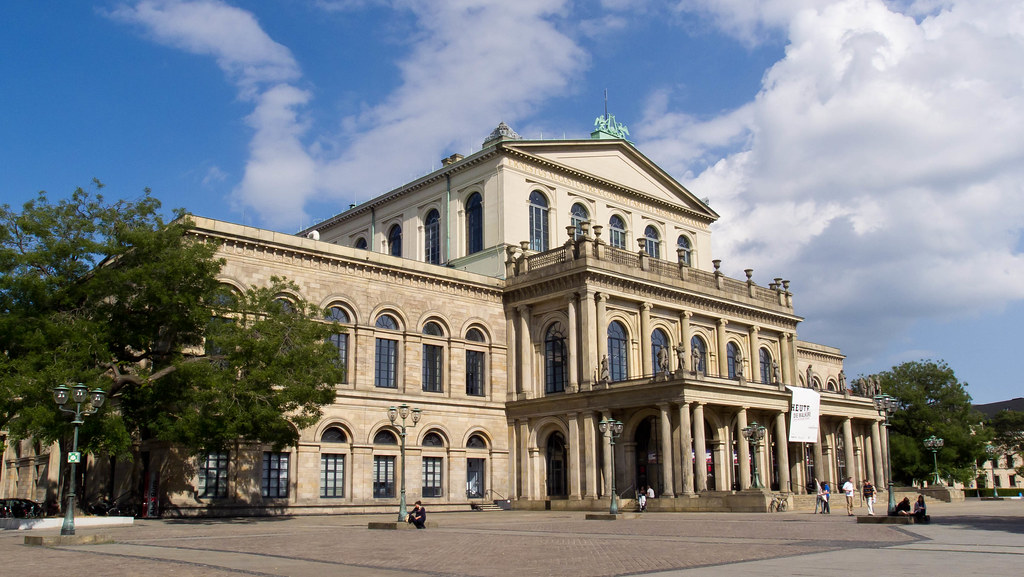German Opera quickly developed after the birth of Opera itself in Italy, the first known German Opera was played at Torgau in 1627.

Image source:https://search.creativecommons.org/photos/aa5dbba3-9d7e-4569-90cc-ac983861c038 by archer10 (Dennis)
Still popular among classical music lovers today, opera is a genre combining music and drama – sort of like an upscale musical theater. Operas are primarily sung, sometimes including spoken word, and typically accompanied by an orchestra or instrumental ensemble. Opera began in Italy at the end of the 16th century. It is thought that the first opera performance in Germany was Italian composer Ottavio Rinuccini‘s Dafne at the Landgrave of Hesse’s wedding in 1627.
Development and Growing Popularity
Throughout the 17th century, German opera grew in popularity. The first commercial opera enterprise was in Hamburg in 1678, with the Theater am Gänsemarkt. The central figure of the Hamburg opera scene was Reinhard Keiser; who wrote over 100 operas in 1694-1734, and also directed the theater. The establishment of the national theater in 1778 encouraged more composers to engage in writing opera.

Image source: https://en.wikipedia.org/wiki/Reinhard_Keiser
Reinhard composed operas mostly on German texts, of which only 19 survive. He was highly regarded by both his colleagues and his audience, who were drawn to his simple lyrical arias, many with colorful and varied instrumentation. Keiser also introduced arias with Italian lyrics, sometimes by other composers, into his German operas and even incorporated comic characters. He was skilled in representing nature and portraying suffering heroines, as in Iphigenia (1699), now lost, and Ariadne (1722).

Image source:https://search.creativecommons.org/photos/2d851f40-0fb5-4606-8238-753c5d5bcdea by iClassicalCom
Heinrich Schütz composed a setting of Dafne (now lost), the first known opera with a German text, and heard it played in Torgau in 1627.
A notable Venetian composer-diplomatist-clergyman, Agostino Steffani, brought much of his hometown’s early operatic manner to Munich, Hanover, and other German centers. He began his opera production in Munich with Marco Aurelio (1681), and from that moment on he continued to compose operas for 28 years. In his use of both Italian and French procedures, particularly in handling the overture and recitative, Steffani developed a sort of international Italian style which was adopted by other “transplanted” composers.
For the next 100 years, the influence of Italian opera was so pervasive that even native German composers adopted the Italian operatic style and used Italian lyrics.
The German word Singspiel was originally used for all types of opera and the earliest known entertainments thus designated were composed by a student of Schütz, Johann Theile.
One of them, “Adam und Eva”, inaugurated Germany’s first public opera house, in Hamburg, in 1678.

Image source: https://search.creativecommons.org/photos/b5a536ac-a71c-44b6-9c07-1383714fae2e by interbeat
During the mid-18th century, the term singspiel was reserved for what the British called “ballad opera” and what the French called opéra comique: light, usually comic operas that incorporated spoken dialogue.
The 18th-century comic singspiel was born in London with “The Devil to Pay” (1731) and its sequel, “The Merry Cobbler” (1735), both English ballads with lyrics by Charles Coffey.
In the German translation, Coffey’s texts attracted the attention of German composers, most notably Johann Adam Hiller, who also composed many other singspiels and brought to fruition a style known as the Leipzig school.
Both Berlin and Vienna adopted the singspiel, and the genre retained the interest of major composers until the 19th century.
19th Century German Opera
The opera in Germany presented two significant styles:
- German Romantic opera;
- Music drama, conceived and developed by Richard Wagner.
In German Romantic opera, the libretti were often based on German legends and folklore, with the mystery of nature and supernatural forces intensifying the dramatic expression. The recitatives and arias in German Romantic operas were distinct forms and were sometimes based on the folk song or folk-style melodies. “Melodrama” (instrumentally accompanied speech), was used for special effects. Two other traits of musical drama were exhibited in the German romantic opera. The orchestra has become a powerful tool in creating atmosphere, moods, and even bits of realism. There was also a prototype of the “leitmotif ” of musical dramas, in which particular instruments and melodies are used to identify and characterize individuals.
The ideal of music-drama, or the art of the future as Wagner called it, was that of an art form in which all the arts were intertwined in a cohesive and continuous line of dramatic expression.

Image source: https://en.wikipedia.org/wiki/Richard_Strauss#/media/File:Max_Liebermann_Bildnis_Richard_Strauss.jpg
Most important german opera composers for each period
Classical era:
- Wolfgang Amadeus Mozart;
- Ludwig van Beethoven;
Romantic era:
- Louis Spohr;
- Carl Maria von Weber;
- Richard Wagner
- Richard Strauss;
Modernism:
- Arnold Schoenberg and his acolyte Alban Berg.
German opera after World War II
Composers who wrote after World War II had to find a way to deal with the destruction caused by the Third Reich. Schoenberg and Berg’s modernism proved attractive to young composers, in that their works had been banned by the Nazis and were free of any stain of the old regime.
Bernd Alois Zimmermann took the example of Berg’s Wozzeck for his unique opera “Die Soldaten” (1965), and Aribert Reimann continued the tradition of expressionism with his “Shakespearean Lear” (1978).
Hans Werner Henze is perhaps the most versatile and internationally famous post-war German opera composer, who has created a series of works that mix Belgian influences with those of Italian composers such as Verdi. Examples of his operas are “Boulevard Solitude”, “The Bassarids” (libretto by W. H. Auden), and “Das verratene Meer”.
Karlheinz Stockhausen has chosen an even more avant-garde path with his enormous opera cycle based on the seven days of the week, Licht (1977-2003). Giselher Klebe created a large body of work in the operatic genre based on literary works. Other leading composers who still produce operas today include Wolfgang Rihm and Olga Neuwirth.
Info sources:
https://en.m.wikipedia.org/wiki/Opera_in_German
http://study.com/academy/lesson/german-opera-composers-singers-music.html
https://www.britannica.com/art/opera-music/German-Romantic-opera
http://www.lcsproductions.net/MusicHistory/MusHistRev/MusicalForms/OperaGr19thc.html
Please also visit: http://www.jbdesign.it/idesignpro
